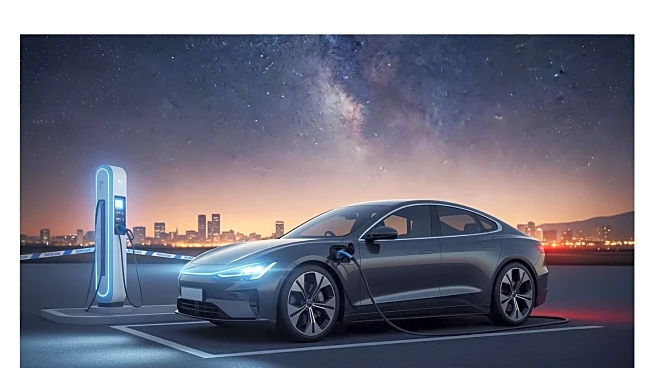What's Happening?
Tesla is navigating a challenging period marked by declining sales in key markets like Germany and China. Despite these setbacks, the company is pursuing ambitious projects, including the expansion of
its Full Self-Driving (FSD) technology and the launch of a Robotaxi pilot service in several U.S. cities. Tesla is also enhancing its product offerings, such as the new self-driving hardware chip AI5 and updates to the Tesla Semi. Additionally, Tesla is expanding its insurance services and charging infrastructure in Europe. These initiatives reflect Tesla's strategy to innovate and capture market share despite recent sales declines.
Why It's Important?
Tesla's efforts to expand its technological capabilities and service offerings are crucial for maintaining its competitive edge in the automotive industry. The development of FSD and Robotaxi services could revolutionize transportation, potentially increasing consumer demand and profitability. However, the company's reliance on ambitious projects carries risks, as failure to deliver could impact its market position. The expansion of Tesla Insurance and charging infrastructure also highlights the company's focus on creating a comprehensive ecosystem for its customers, which could enhance brand loyalty and drive future growth.
What's Next?
Tesla plans to launch its Robotaxi service in cities like Las Vegas and Miami, with further expansion anticipated. The approval of FSD in Japan and China could open new markets for Tesla's autonomous driving technology. The company is also preparing to introduce the Cybertruck in the UAE and expand its insurance services in Florida. These developments will require regulatory approvals and successful implementation to achieve Tesla's growth objectives.
Beyond the Headlines
Tesla's strategic initiatives reflect broader trends in the automotive industry, including the shift towards autonomous driving and integrated service ecosystems. The company's focus on innovation and expansion could influence industry standards and consumer expectations. However, Tesla's approach also raises questions about the sustainability of its business model and the potential impact on traditional automotive manufacturers.











